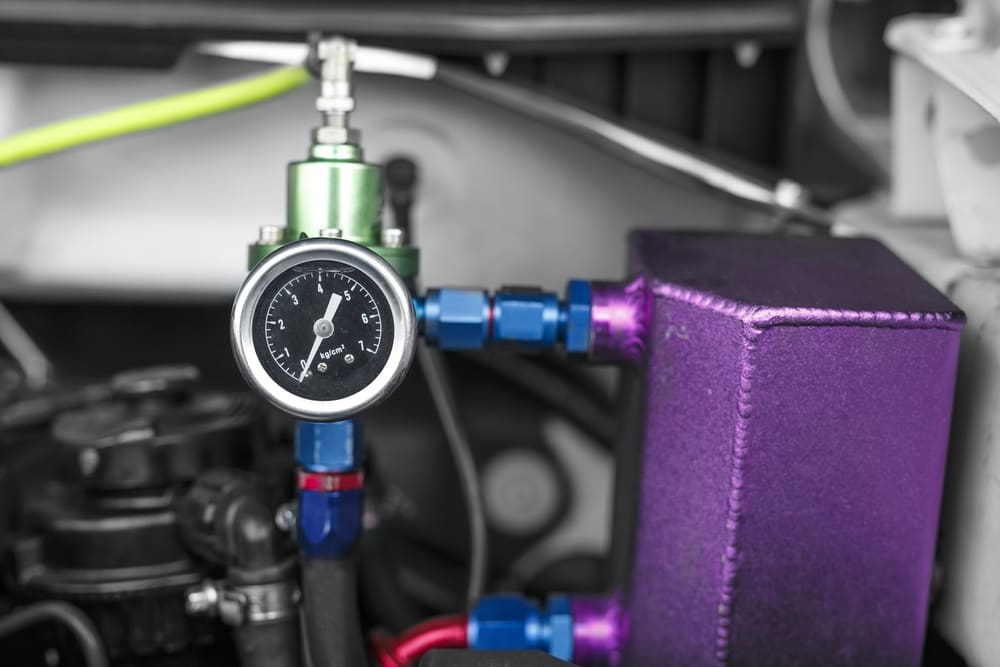

There are all kinds of shapes, styles, and capacities of fuel pressure regulators – from fuel-injected applications to carbureted vehicles and diesel-powered and E-85 engines. The fuel pressure regulator works with the fuel injection system in order to send fuel to the engine to attain efficient combustion.
The fuel pressure regulator is required to be in optimal working condition in order to keep fuel flowing accurately through to the engine, and it is generally located on the fuel rails or near the injectors or injector pod; although there are also in-line regulators available. If you have a vehicle with a return-less fuel system, the fuel pressure regulator will be built into the fuel pump assembly.
Generally, a fuel pressure regulator has an internal part that utilizes a spring and a diaphragm for the spring to push against. The pressure on the spring is set by the manufacturer at the optimal pressure to keep the fuel injectors running at top efficiency.
The valve attached to the diaphragm opens when pressure exceeds the allowable amount to let fuel move through into the return line, keeping the pressure from becoming too high at the fuel injectors.
Fuel pressure regulators are very solid pieces of engineering, and rarely need to be replaced, however you may notice drops in the fuel system pressure, failures to start or poor drivability when your vehicle is idling because the engine does not receive the fuel that it needs to run smoothly.
Aftermarket fuel pressure regulators should be every bit as good as OEM (Original Equipment Manufacturer) parts.
Depending on your vehicle’s engine layout, you may have to replace the entire fuel sending unit instead of simply the fuel pressure regulator.
In-tank and inline fuel regulators are available. If you are not sure which one your vehicle needs, contact a qualified mechanic to learn more and be sure you’re getting the correct part.
While they don’t often fail, when you have problems with your fuel regulator it is very important to get them resolved quickly by replacing the part.
YourMechanic supplies top-quality fuel pressure regulator to our certified mobile technicians. We can also install a fuel pressure regulators that you've purchased. Click here to get a quote for a fuel pressure regulator replacement.



